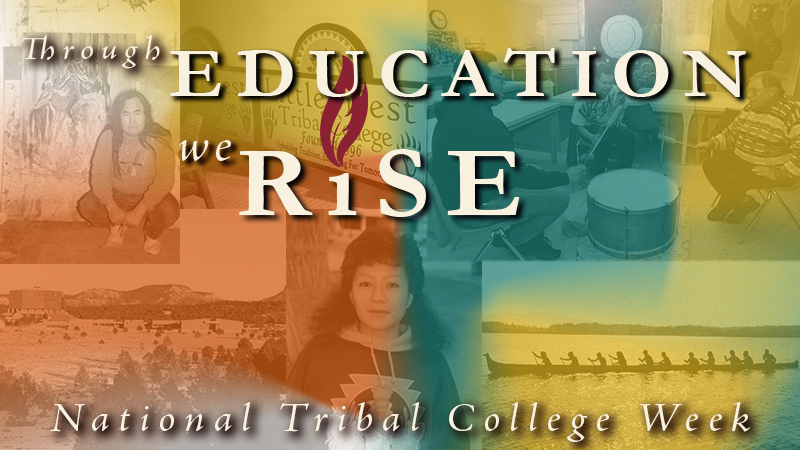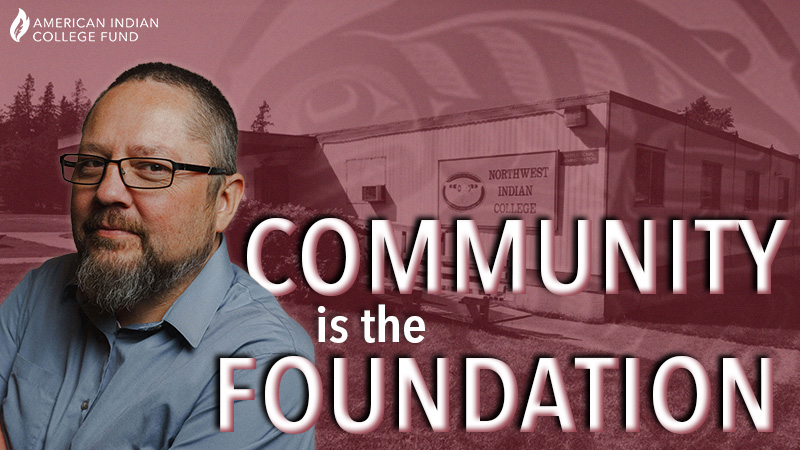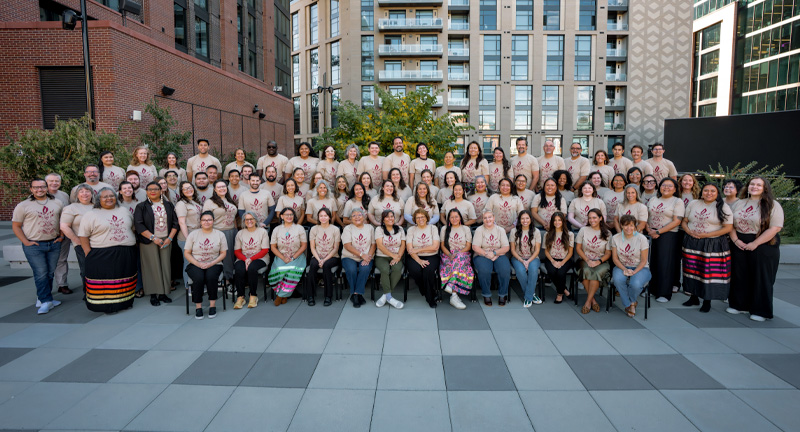Groundwater contamination, erosion, lack of access to healthy foods, and poor air quality are just some of the environmental concerns facing American Indian communities across the United States. Yet indigenous people have long held specialized knowledge that can lead to unique solutions to these challenges. The American Indian College Fund (the College Fund), whose motto is “Education is the answer,” is announcing the first three tribal college and university (TCU) grantees in its three-year, $1.35 million Scholarly Emergence for Environmental Design and Stewardship (SEEDS) program to meet that goal of creating indigenous solutions to today’s environmental concerns.
The program supports TCUs located in Wisconsin, Minnesota, North Dakota, South Dakota, and the grasslands region of Montana that are serving Native communities to build and strengthen curriculum in the environmental sciences and related fields. TCUs are also working to integrate place-based and inter-generational community knowledge to preserve and restore Native lifeways. The program will also help TCUs develop faculty; create degree programs; and implement processes to ensure student success.
The three new program grantees include the following TCUs:
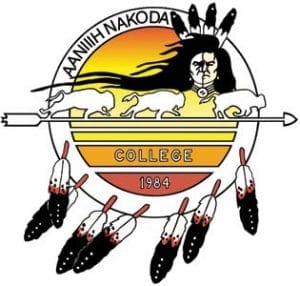 Aaniiih Nakoda College (ANC), Harlem, Mont., has been awarded $100,000 from January 2018-2020 for its project to build a bachelor’s degree program in Aaniiih Nakoda Ecology. The TCU will strengthen its existing environmental science program by bolstering the existing associate degree curriculum and developing a new bachelor’s degree curriculum; facilitating faculty professional growth; and increasing work-based learning opportunities for students.
Aaniiih Nakoda College (ANC), Harlem, Mont., has been awarded $100,000 from January 2018-2020 for its project to build a bachelor’s degree program in Aaniiih Nakoda Ecology. The TCU will strengthen its existing environmental science program by bolstering the existing associate degree curriculum and developing a new bachelor’s degree curriculum; facilitating faculty professional growth; and increasing work-based learning opportunities for students.
President Carole Falcon-Chandler, Ed.D, said, “We sincerely look forward to accomplishing a new bachelor’s degree curriculum, assisting our faculty with their professional growth, and helping our students with opportunities for work-based learning.”
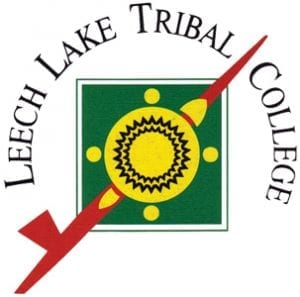 Leech Lake Tribal College (LLTC), Cass Lake, Minn., has been awarded $100,000 from January 2018-2020 for its project to enhance existing environmental education at the TCU. The project will increase the TCU’s capacity to prepare students for environmental careers or to continue to a four-year degree program by increasing STEM degree student retention and graduation; support STEM faculty seeking advanced degrees; revitalize the TCU’s forestry program of study, integrate Anishnaabe Gikendaasowin (traditional ecological knowledge) into science curriculum and summer research; and develop the college’s capacity for environmental research and collaboration.
Leech Lake Tribal College (LLTC), Cass Lake, Minn., has been awarded $100,000 from January 2018-2020 for its project to enhance existing environmental education at the TCU. The project will increase the TCU’s capacity to prepare students for environmental careers or to continue to a four-year degree program by increasing STEM degree student retention and graduation; support STEM faculty seeking advanced degrees; revitalize the TCU’s forestry program of study, integrate Anishnaabe Gikendaasowin (traditional ecological knowledge) into science curriculum and summer research; and develop the college’s capacity for environmental research and collaboration.
Dr. Patricia Broker, Interim President, said, “The American Indian College Fund is one of the greatest supporters of Tribal Colleges. The SEEDS grant will help us meet our broad mission of serving the Leech Lake Nation as we work to develop our leadership in the area of environmental stewardship.”
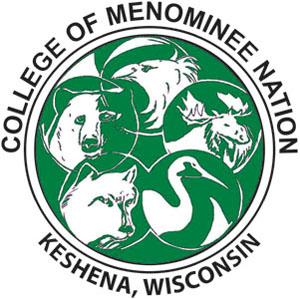 The College of Menominee Nation (CMN), Keshena, Wis., was awarded $100,000 from January 2018-2020 to design and develop a Bachelor of Arts degree program in Integrative Studies built upon the Menominee model of sustainable development. CMN will work in conjunction with CMN’s Sustainable Development Institute, Menominee Tribal Leaders, and student interns to design the degree program. The program will modify existing courses to reflect new program objectives; design new courses to advance program objectives and connect students to environmental/sustainability community initiatives; and collaborate with others at the college to team-teach courses across various disciplines.
The College of Menominee Nation (CMN), Keshena, Wis., was awarded $100,000 from January 2018-2020 to design and develop a Bachelor of Arts degree program in Integrative Studies built upon the Menominee model of sustainable development. CMN will work in conjunction with CMN’s Sustainable Development Institute, Menominee Tribal Leaders, and student interns to design the degree program. The program will modify existing courses to reflect new program objectives; design new courses to advance program objectives and connect students to environmental/sustainability community initiatives; and collaborate with others at the college to team-teach courses across various disciplines.
Dr. Diana Morris, Interim President, said, “With the addition of this degree program, students and potential students will have new educational opportunities at CMN, opportunities founded on traditional Menominee respect for the natural environment and designed to develop the personal strengths that the Menominee Model of Sustainable Development advances. These strengths are critical thinking, effective communication, constructive collaboration, aesthetic awareness, inclusive perspective, facility with technology, and active community engagement.
Ongoing collaboration with individuals and institutions within the Menominee community will be accomplished through internships, class/community projects, and research. They will insure students in the Integrative Studies program remain engaged in their community through their years at the College of Menominee Nation and that community knowledge, developed through centuries and passed along through generations, will infuse their CMN education.”
The Scholarly Emergence for Environmental Design and Stewardship (SEEDS) program is made possible, in part, by a grant from Margaret A. Cargill Philanthropies.

